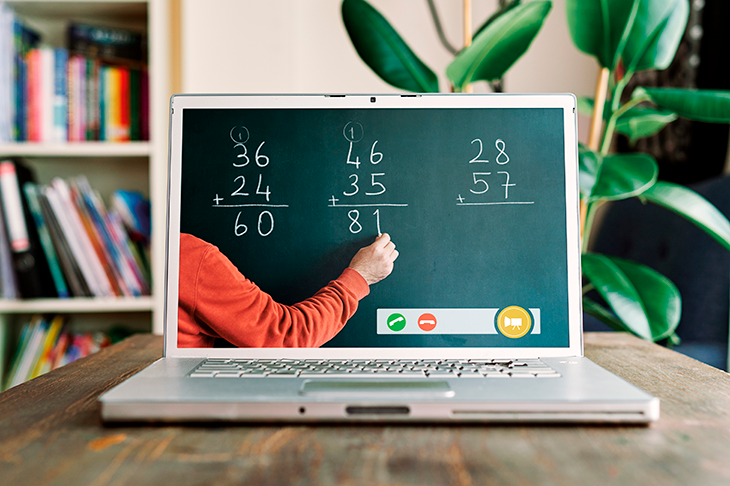I had a Post-it note beside my laptop during the online lessons I taught during lockdown. It simply said ‘shut up’. I have spent 20 years teaching maths in urban comprehensives, reflecting and refining my methods and trying to train others. I thought I was doing a pretty decent job, but the pandemic and the necessity of teaching remotely has made me rethink the whole process.
Early on in May I realised I had to work out, from scratch, what I actually wanted my students to become and how, in the world of screen-mediated learning, I could help them achieve this.
What do I want my students to become? I want them to become autonomous problem-solvers, courageous in the face of the Unknown Problem. I want them to discriminate between good and bad use of statistics, and I want them to be able to meditate on the tiny pulsing infinity at the heart of maths. None of that has changed in kind, thanks to Covid, but it has changed in degree.
Covid essentially forced the nation’s teachers to do an instantaneous life-swap with teachers from the 2030s
Statisticians are the new rock stars and the ubiquitousness of good stats, bad stats and up-close-and-personal stats has made that part of our subject much more real. Covid means there’s more reason than ever to be a maths teacher.
But what am I able to offer my students, if anything? It took only a few hours of staff meetings, residents meetings and school consultancy meetings online to realise that didactic screen time was a mistake. Hence, ‘shut up’ as the first axiom of remote teaching.
Let’s say I wanted to introduce some new mathematical content; I found there was always someone on YouTube doing it better than me, and in rhyme, so I became a curator of experience. This still allows me to offer myself cameo roles in my own lessons, celebrating homework, taking the long view in the five minutes before break-time. But remote schooling favours the maths teacher who spends their prep time choosing beautiful problems for students to wrestle with, investigating the wild horizons of educational technology and perhaps rehearsing a five-minute recorded clip to elucidate a point — which students can then revisit. The time spent preparing soared initially, but once the habits were in place, it was no more arduous than prepping a new topic.
And in the world of screen-mediated learning, nothing is impossible. Students can all work on the same shared screen in real time, or in staggered time, sitting beside each other, continents apart. You can see how they answer questions and the way they all work, their pens hesitantly crossing the page. You can pause time — and then pore over the messy work of struggling students and listen to what they tell you in private, without the spotlight of praise and blame in a classroom. We can discuss how students can arm themselves against their mistaken intuitions, turning the mirror on our group-brain. And students can get automatic feedback from gamified maths skills websites, where clever little noises tap into their limbic systems and make them crave more maths. Beep! More maths. Beep! More maths.
The new technology makes a lesson a group learning venture in which students’ ideas about how to use it are vital to success. My students are sympathetic and creative (this year they are inner-city sixth formers). Every new initiative goes through a trial phase in lessons, inviting anonymised feedback (often silly, invariably perceptive).
And it feels great to have grabbed back control from technology, when I had been resisting it for years. The learning process doesn’t get any easier as you get older and rustier. But it is undoubtedly something that teachers should be engaging in, more than anyone (message to Gavin Williamson: enable your teachers to access higher education as a part of their working lives and the prestige of the profession will begin to approach what it deserves).
Covid essentially forced the nation’s teachers to do an instantaneous life-swap with teachers from the 2030s. Long-toothed teachers like me either crumpled under the weight of new technology or grasped the damned thing and started swinging it around. My own view is that Covid’s remote-learning reset has offered us oldsters the chance to rejuvenate and we need to take it.






Comments